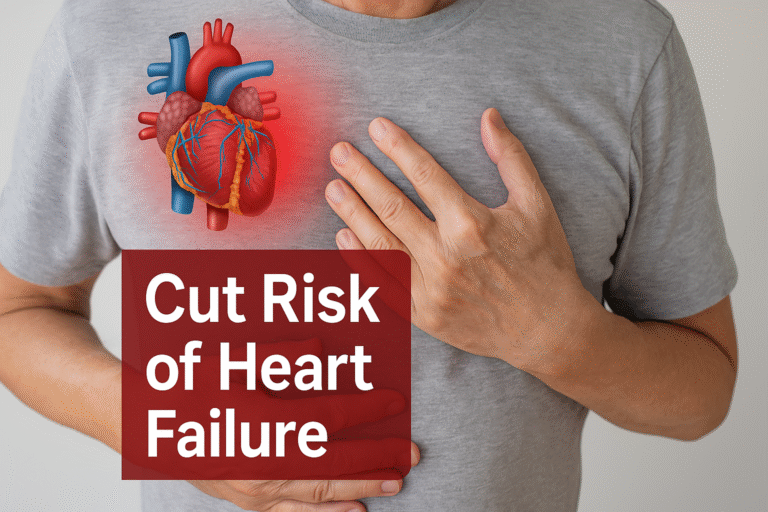
Aging is a natural process that no one can escape. Wrinkles, weaker bones, slower energy, and changing body functions are all signs that time is moving forward. But what if something as simple as a vitamin could slow down these effects and help us age more gracefully? That’s where Vitamin D steps in. Often called the “sunshine vitamin,” this nutrient has been linked to stronger bones, better mood, and even healthier aging.
Recent research suggests that Vitamin D may play a bigger role in the way we age than previously thought. While it’s not a magical cure for aging, science indicates that maintaining the right levels of Vitamin D can support our body’s ability to stay active, energetic, and resilient as we grow older.
Let’s dive deeper into how Vitamin D impacts graceful aging and why it might just be the secret ingredient to a healthier, more vibrant life.
The Role of Vitamin D in the Body
Vitamin D is more than just a vitamin — it acts like a hormone. It helps the body absorb calcium and phosphorus, two minerals essential for strong bones and teeth. But that’s just the beginning. Vitamin D influences nearly every system in the body, including the immune system, muscles, brain, and even skin health.
When we don’t get enough Vitamin D, we may experience fatigue, weak immunity, brittle bones, and even mood swings. Over time, these effects can accelerate the aging process, making us feel and look older than we really are.
How Vitamin D Supports Graceful Aging

1. Stronger Bones and Joints
As we age, bone density naturally declines, increasing the risk of fractures and osteoporosis. Vitamin D helps maintain bone strength by ensuring calcium absorption. With adequate levels, older adults can move more freely and avoid the stiffness or fragility that often comes with aging.
2. Boosts Muscle Strength
Weak muscles are a major reason why many people lose independence in their later years. Vitamin D contributes to muscle performance, balance, and coordination. This lowers the risk of falls — a common problem in old age.
3. Sharpens Cognitive Health
Emerging studies link low Vitamin D levels to memory problems, dementia, and cognitive decline. Although more research is needed, scientists believe Vitamin D supports brain cells by reducing inflammation and protecting neurons.
4. Enhances Immunity
Aging often weakens the immune system, leaving the body vulnerable to infections. Vitamin D strengthens immune defenses, helping the body fight off illnesses more effectively. A strong immune system is key to feeling youthful and energetic.
5. Protects the Heart
Cardiovascular health is critical for graceful aging. Some studies suggest Vitamin D deficiency is associated with higher risks of hypertension, heart disease, and stroke. While it’s not a replacement for medical care, maintaining healthy levels can support long-term heart health.
6. Uplifts Mood and Energy
Depression and fatigue often become more common with age. Vitamin D is closely tied to mood regulation. Adequate levels can boost serotonin (the “happy hormone”), helping older adults feel more positive, motivated, and energetic.
7. Supports Skin Health
Aging skin naturally loses elasticity, becoming thinner and more prone to wrinkles. Vitamin D may contribute to skin repair and regeneration, keeping the skin healthier and slowing the appearance of age-related damage.
How Much Vitamin D Do You Really Need?
The required amount of Vitamin D can vary depending on age, lifestyle, and health conditions. Generally, adults need 600–800 IU (International Units) daily, but some may require more if they are deficient.
Ways to maintain healthy Vitamin D levels include:
- Sunlight: Spending 15–20 minutes in the sun a few times a week helps the body produce natural Vitamin D.
- Diet: Foods like fatty fish (salmon, tuna, mackerel), eggs, fortified milk, and mushrooms are rich in Vitamin D.
- Supplements: If sunlight and diet are not enough, supplements can help maintain optimal levels.
It’s always best to check Vitamin D levels through a blood test before starting supplementation. Too much Vitamin D can cause side effects, so balance is key.
Signs of Vitamin D Deficiency
A deficiency can accelerate aging and lead to several health issues. Common signs include:
- Constant fatigue
- Weak muscles
- Frequent colds or infections
- Bone pain or fractures
- Hair thinning
- Low mood or depression
If these symptoms are present, it may be worth getting Vitamin D levels tested.
Can Vitamin D Really Slow Aging?
While Vitamin D isn’t a miracle pill, science strongly suggests that it plays a crucial role in healthy aging. By supporting bones, muscles, immunity, mood, and overall vitality, it helps people remain independent, active, and youthful for longer.
Aging gracefully isn’t just about living longer — it’s about living better. And with the help of Vitamin D, you may add not just years to your life but life to your years.
Practical Tips to Age Gracefully with Vitamin D
- Get Morning Sunlight: Safe exposure to early sunlight is one of the best natural sources of Vitamin D.
- Eat Vitamin D-Rich Foods: Incorporate fish, dairy, and fortified cereals into your diet.
- Exercise Regularly: Strength training and walking can boost both bone and muscle health.
- Stay Hydrated: Proper hydration supports overall well-being.
- Consult a Doctor: Get your Vitamin D levels checked and take supplements if advised.
FAQs
1. Can Vitamin D make you look younger?
Vitamin D won’t erase wrinkles, but it supports skin repair, bone strength, and energy levels, all of which can help you appear more youthful.
2. Is Vitamin D better from sunlight or supplements?
Sunlight is the most natural way, but depending on location, skin type, and lifestyle, supplements may be necessary.
3. How do I know if I’m getting enough Vitamin D?
A simple blood test can measure Vitamin D levels. Symptoms like fatigue, frequent illness, and bone weakness may also suggest deficiency.
4. Can too much Vitamin D be harmful?
Yes. Over-supplementation can lead to kidney problems, nausea, and high calcium levels. Always follow medical advice.
5. At what age should I start focusing on Vitamin D?
It’s important at every age, but particularly after 40, as natural Vitamin D production in the skin declines.
6. Does Vitamin D help with hair loss?
Yes, deficiency has been linked to hair thinning. Adequate levels may support healthy hair growth.





